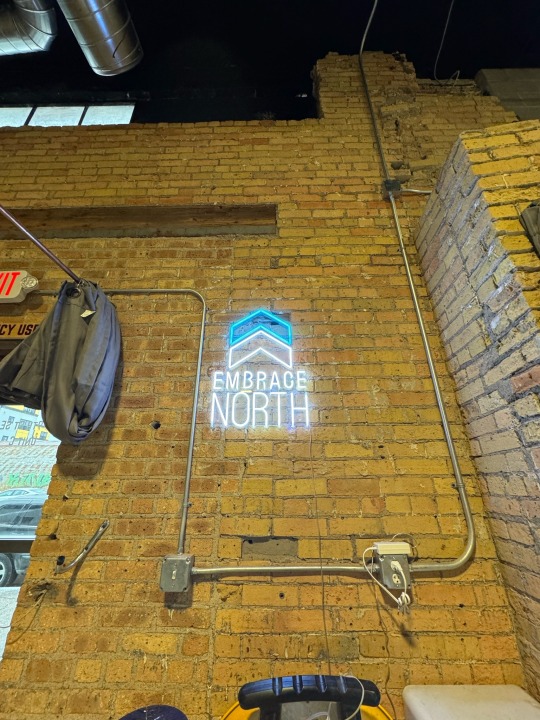#my era
Text

#quotes#inspiration#motivation#self improvement#self help#self worth#self healing#self love#self care#love yourself#affirming#self affirmation#affirmations#manifesting#manifesation#i am lucky#lucky me#arisingsun#my era#prayers#twitter#satisfaction
21 notes
·
View notes
Text
Speak up
Follow insta@ v_the_first_
#alt girl#emo aesthetic#emocore#altfashion#emo as hell#grunge#explore#pinterest#dark aesthetic#grungy aesthetic#trending on tumblr#edgy grunge#2014 grunge#king kylie#my era#emo hair#2000s scene#2014 tumblr#vinylcollector
13 notes
·
View notes
Text

MY COMFORT SHOW <333
4 notes
·
View notes
Text

I'm begging for you to take my hand 🫴
12 notes
·
View notes
Text



In my sourdough, sauna & cold plunge, and crushing on Gordon Ramsey era.
2 notes
·
View notes
Text
Do I currently have a 2012 Avengers Clintasha breakdown because of @iriel3000 and do I love spending my evening with fic today. Yes absolutely. Loved the 2012 era and reminds me of easier days in my life. Thank you @iriel3000 ❤️💜❤️💜


#hawkeye#clint barton#black widow#clintasha#hawkeye tv#the avengers#avengers 2012#my era#my otp forever#natasha romanoff#clintnat#Spotify
19 notes
·
View notes
Text
I'm in my "listening to all too well by Taylor Swift on repeat, even though I was never in a relationship" era
12 notes
·
View notes
Text
when i started talking about wanting my own dw series with @rearranging-deck-chairs it was a joke. i now have a doctor, master and two companions lined up and several episodes roughly sketched out
#🥀#also the HUGEST shout-out to icarus who helped me design them and the tardis & is currently drawing them for me#my era
16 notes
·
View notes
Text
Notes from South Yorkshire Mining Villages, by Melvyn Jones.
- Mines, or Collieries, have existed in southern England since people noticed coal and ironstone - sandstone with hematite nodules and/or a high percentage of hematite in it. There's an interesting record of a monastic grange, the Kirkstead Abby in Lincolnshire, petitioning an estate owner to mine ironstone on his land in 1161 and they proceeded to smelt iron and blacksmith nails for at least a century.
- Mines were initially small-scale pit operations, operating for the local area with a crew of 5-6. The development of canals from 1780-1820 kicked off the boom of industrialization, especially in these small pit mines because coal could now be shipped by canal. This allowed more workers to produce more coal, etc.
- During this time we see people begin to be displaced by the industrialization of the loom. There was a family of weavers, noted via census, as moving south when the father and three sons could no longer find work.
- The development of railways and steam engines made canals more or less defunct from 1820-1850, and this is when mining villages began to kick off, due to increased demand from engines and coking coal for steel. Glassworks and coking factories often sprung up inside the town next to the colliery or along the rail lines. Often these towns were already placed - sometimes they still have Old English names referencing original medieval homeowners the towns sprung up around - but they also sprung from convenient areas next to the railway. English geology played nice by stretching from shallow to deep, West to East. So the coal seam was mined easiest to hardest, West to East. - English coal was most prominent from 1850-1930, nationalized 1947.
- Because most housing from 1750-1850 was new and they needed a lot of it, it was essentially block housing units, initially built by the enterprising Lord until around 1840 when companies built them. They weren't always nice, but they usually had gardens, three-five rooms (including kitchen and living area), and a water closet in the back. I also noticed all of them had a allotment garden on the side of the town. This persists until the last town was mentioned, in the far East, made around 1930. Then the map doesn't label allotment gardens. (Also, notably, these were nice houses for the time. Holy shit, they had running water and space for lodgers and additional family members. Like if you were offered a current-day suburbia mcmansion [that quickly disintegrated] in exchange for labor.)
- After 1840 it was usually the mining company that built the housing units and there was little to no control from the Lord who had originally owned the land. I think this was a transition from the mineral rights being turned over to a lease of the land itself, but I'm not sure.
- The housing was still pretty nice for the times; this seems to be a key way to lure people away from other mine sites to the newest one. Even sites that had been built in 1800 usually had some additions over the years to have running water, upgrades to heating, etc. The houses built in 1900 had running water, baths, and indoor toilets. Of course, this comes with the caveat of "if you strike, we kick you out of your homes" which immediately caused problems, all the way back to 1800. Which brings us to the unions:
- This book paints a picture of motion and that's what really clicked for me when we talk about unions. I always wondered why blackleg miners (English term for strike-breakers; the Americans coined 'scab') could be so callused- because ~stand together~ and all that. But these were all migrants. The comparison that came to mind was if you invited several thousand workers from Mexico to work in the same state and paid them pittance wages and they went on strike - which still happens today. It takes more than self-restraint when a crop ends and you're looking for the next job and someone is actively not working that job when people are still flowing in from Mexico, starving, and will take anything. Comparing how small Yorkshire is, how small each mine is, and how all these people are moving to a new town every twenty years as mine conditions changed, adds poignancy too.
#mining#notes#I need to think of a way to convey the violence and desperation that comes through some of these census entries; it's really rough#history#my era#victorian england
2 notes
·
View notes
Text
I'm in my HTTYD Era rn how y'all feeling

#httyd#how to train your dragon#astrid hofferson#astrid httyd#my era#no but ive been annoying anyone within my vicinity about it#i feel bad but i like genuinely dont want to talk about anything else#i also dont feel bad at all cause anything that comes out of my mouth is correct
10 notes
·
View notes
Text

Moon era
#goth aesthetic#alt girl#emo aesthetic#emocore#altfashion#emo as hell#explore#grunge#pinterest#dark aesthetic#grungy aesthetic#alternative goth#2014 aesthetic#my era#2014 tumblr#2014core#2000s scene#2014 grunge#edgy grunge#dark fantasy#moon#moonlight#black alternative#gothcore#2000s emo#black tumblr#black alt girl#emo girl#emo scene#art
10 notes
·
View notes
Text
ever since i was a little girl i knew i wanted to have life experiences that were so utterly different from everyone else in my age group
58K notes
·
View notes
Text

take it all in, taylor, take it all in... 😮💨🤍
4 notes
·
View notes
Text
am i in my poet era
yes
am i loving it
yes
will i post any actual poetry?
yes
1 note
·
View note
Text

A murder has occurred
18K notes
·
View notes
